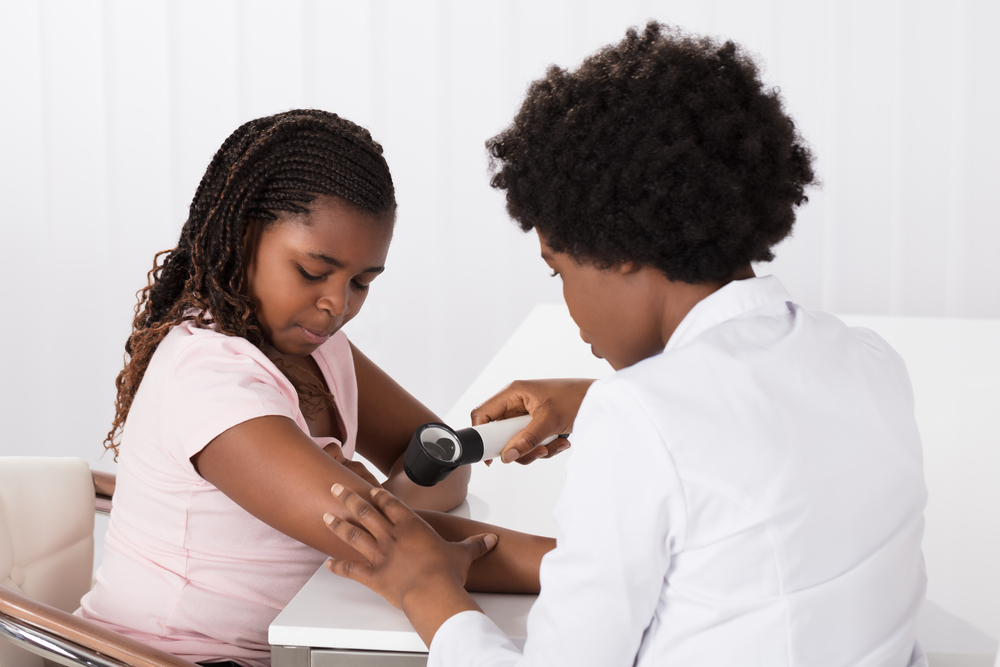Learn To Identify Shingles To Get Proper Treatment On Time
Learn to identify shingles to get proper treatment on time
Shingle is a painful condition – a skin infection that manifests itself as patches of rashes and blisters on the body. This is a viral infection that has no cure. But if identified early, it can be treated and kept under control, so that it goes away soon.
What causes shingles?
Childhood is a time for many diseases like measles, chickenpox, and smallpox. All these are viral infections. Though you may be affected by these diseases later in life, you are most vulnerable during childhood.
The smallpox vaccine has greatly curbed the occurrence of this disease.

Still, the chickenpox virus, Varicella Zoster, does not completely go away. Even after you have been cured of chickenpox, this virus remains in your body. It may not cause any problems for years. However, when you get to be 50 and older, this virus wakes up again and can cause other skin disease, shingles.
How do you identify shingles?
Early identification is the key to control this condition and avoid complications.
The shingles rash can appear in patches on your face or body. There are various pictures shingles rashes on the internet. They form as patches of red rashes that quickly turn into oozing blisters. If you want to be sure, search for pictures of shingles rashes on the web. Learn to spot them and consult your doctor at once. Remember, even if you have never had chickenpox, the virus could still affect you if you come into contact with an infected person with oozing blisters.
While your doctor can easily identify whether the rashes are shingles, there are times when he needs to be sure. The rashes resemble the symptoms of other skin conditions like contact dermatitis, impetigo, insect bite rashes, scabies, and folliculitis.
If you have shingles, the rashes and blisters can be accompanied by other signs. The rashes affect one side of your face or body. They itch and cause pain and a burning sensation. They begin with red rashes. These rashes soon become blisters that start to ooze and form crusts.
Tests for diagnosing shingles
Your doctor does not have to conduct any tests for shingles; they are easily identified. When you have shingles on the body, you may also have fever, nausea, chills, and headaches. However, in some cases, the rashes might not be enough to identify the condition. The doctor may resort to clinical tests in cases where the patient is at high risk for complications from any skin infection. The patient may be a candidate for an organ transplant. He may be taking immunosuppressant drugs for other medical conditions. The patient has a medical condition where his immune system is not functioning properly.
These are just some of the reasons for which the doctor might resort to lab test to confirm his diagnosis of shingles. The doctor can conduct two tests to identify the presence of the chickenpox virus in your system.
- An antibody test
The doctor takes a blood sample from your arm and tests it for the presence of proteins called antibodies, that the immune system makes to fight diseases. This test may be able to help identify the antibody produced — to deal with the chickenpox virus. However, it might not be easy to tell whether the antibodies were manufactured when you had chickenpox, or they are being produced to fight the invasive virus now. - Virus Identification Test
This test helps to identify the presence of the Varicella Zoster virus in your body. The doctor can take a fluid sample from your spine or scrape off skin cells and fluids from the blisters you have. These cells are then tested to detect the presence of the shingles-causing virus. In some cases, you might need to undergo one more such test to confirm the presence of this virus.
Begin treatment early to avoid complications
- Call your doctor quickly if you suspect you may have shingles. While shingles infection can last for up to a month, in a few cases, it can cause other complications.
- If the shingles rashes appear in or near your eyes, it can affect your vision. Your eyes can become sore and inflamed; the rashes can cause scarring, affecting eyesight. It can even cause glaucoma, a condition in which pressure begins to build up behind your eyes, eventually damaging your vision.
- If the shingles rash affects your ears or the region around it, it can lead to a disease called Ramsay Hunt syndrome, which can affect your hearing, cause dizziness, and tinnitus (a ringing sound in your ears). It can even lead to facial paralysis.
- The most common complication caused by shingles, even after the condition goes away, is postherpetic neuralgia. This is a lingering pain and burning in the parts of your body that were affected by the rash.
Shingles are extremely painful, itchy, and affect your appearance with rashes and oozing blisters. These blisters can become infected, in which case you may have to take antibiotics in addition to other medicines.
Identify shingles rashes quickly and see your doctor at once. Look at shingles rash photos to learn what they look like. Early treatment with antiviral medicines can help keep shingles in control, make it go away sooner, and avoid complications.

